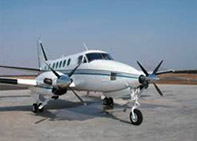In June 2017, Phoenix was hit by a severe heatwave, with the mercury reaching 1200F; the American Airlines had to cancel 50 flights scheduled to depart from Sky Harbor International Airport. The news of the cancellations of the flights spread across the world. To know the reason behind this, one must understand the physics of air travel and how extreme heat affects flying.
One of the reasons for cancellation was that the planes were regional jets tested for the maximum temperature of 118°F, whereas the large aircraft used for long-haul flights are tested up to 127°F. Let’s understand the scientific reason behind it. For a plane to take off from the ground, the lift force has to be greater than the gravitational force due to the aircraft’s weight. A hot climate causes less lift force, as the air density reduces due to the heat. The engine of the plane has to be lighter on a hotter day than on an average day. The only way to reduce weight is less cargo or fuel or passengers.
Columbia University’s recent study shows that 10 to 30% of flights scheduled for takeoff during extremely hot sunny days will have to shade their weight by an average of about 700 pounds, i.e. approximately equivalent to three passengers and their luggage. The study further claims that the airports in hotter regions and at high elevations with short runways will be affected maximum and will impose strict weight restrictions by the year 2080, maybe for around 50 days a year. For example the airports in Bangkok, Dubai, Miami, Los Angeles, Phoenix, Denver, Washington, D.C., New York’s LaGuardia etc.
To overcome this effect, airports will need to invest in building longer runways. In contrast, aeroplane manufacturers will need to pump in money for improving the technology that undergirds engine performance and airframe efficiency. Air traffic controllers will need to revise schedules so heavier planes land and take off during cooler times of the day. Airports are already following this practice in cities like Dubai, where extreme heat is more common.








Leave a Reply
You must be logged in to post a comment.